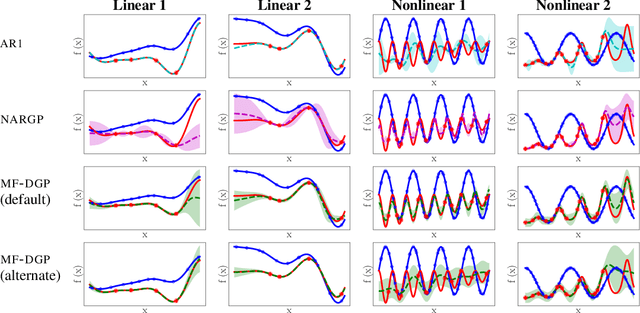Mark Pullin
Emulation of physical processes with Emukit
Oct 25, 2021



Abstract:Decision making in uncertain scenarios is an ubiquitous challenge in real world systems. Tools to deal with this challenge include simulations to gather information and statistical emulation to quantify uncertainty. The machine learning community has developed a number of methods to facilitate decision making, but so far they are scattered in multiple different toolkits, and generally rely on a fixed backend. In this paper, we present Emukit, a highly adaptable Python toolkit for enriching decision making under uncertainty. Emukit allows users to: (i) use state of the art methods including Bayesian optimization, multi-fidelity emulation, experimental design, Bayesian quadrature and sensitivity analysis; (ii) easily prototype new decision making methods for new problems. Emukit is agnostic to the underlying modeling framework and enables users to use their own custom models. We show how Emukit can be used on three exemplary case studies.
Deep Gaussian Processes for Multi-fidelity Modeling
Mar 18, 2019



Abstract:Multi-fidelity methods are prominently used when cheaply-obtained, but possibly biased and noisy, observations must be effectively combined with limited or expensive true data in order to construct reliable models. This arises in both fundamental machine learning procedures such as Bayesian optimization, as well as more practical science and engineering applications. In this paper we develop a novel multi-fidelity model which treats layers of a deep Gaussian process as fidelity levels, and uses a variational inference scheme to propagate uncertainty across them. This allows for capturing nonlinear correlations between fidelities with lower risk of overfitting than existing methods exploiting compositional structure, which are conversely burdened by structural assumptions and constraints. We show that the proposed approach makes substantial improvements in quantifying and propagating uncertainty in multi-fidelity set-ups, which in turn improves their effectiveness in decision making pipelines.
 Add to Chrome
Add to Chrome Add to Firefox
Add to Firefox Add to Edge
Add to Edge